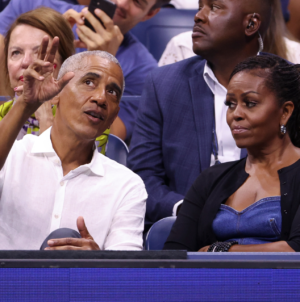-
Persecuted Christians Show Gratitude to Hungarians for Lifesaving Support - 26 mins ago
-
Michelle Obama Speaks Out on Barack Split Rumors - 32 mins ago
-
A-Rod and Jeter Are Back For the Relaunch of Backyard Baseball ’01 - 33 mins ago
-
U.S. beats Costa Rica in thrilling penalty shootout to advance in Gold Cup - 47 mins ago
-
Record Number of Participants to Compete in This Year’s Balaton Swim - about 1 hour ago
-
New Microsoft AI Research Edges Towards ‘Medical Superintelligence’ - about 1 hour ago
-
Man City vs. Al-Hilal: Preview, odds, how to watch, time - about 1 hour ago
-
Severe heat wave hits southern Europe and raises wildfire risks - 2 hours ago
-
Farmers Provided with Free Irrigation Water for Drought - 2 hours ago
-
Video Shows Pioneer Flight in Race to Start Electric Air Taxi Service - 2 hours ago
Canada and US Trade Talks Resume After Digital Tax Reversal
Canada and the United States have resumed trade negotiations after Canadian Prime Minister Mark Carney agreed to rescind the country’s digital services tax on U.S. technology companies.
The development follows President Donald Trump’s announcement on Friday that he was suspending all trade talks with Canada “effective immediately” over the tax policy.
Why It Matters
Trump’s Friday announcement followed Canada’s confirmation that it would proceed with its digital services tax on technology giants, most of which are U.S.-based, despite a previous G7 agreement where the Trump administration had agreed to drop a retaliatory tax proposal from congressional consideration.
Canada’s quick reversal signals the high stakes involved in maintaining trade relationships with the United States, particularly given the countries’ deeply integrated economies.
What To Know
Carney’s office confirmed on Sunday that both leaders have agreed to restart negotiations after Canada committed to abandoning the 3 percent levy targeting major U.S. tech giants including Amazon, Google, Meta, Uber, and Airbnb. The tax was scheduled to take effect Monday and would have applied retroactively, creating an estimated $2 billion bill for American companies.
The conflict escalated rapidly after Canada’s Finance Department confirmed Friday that companies would still be required to make their first digital tax payments Monday, despite ongoing negotiations. The tax targeted revenue generated from Canadian users rather than corporate profits, making it particularly burdensome for technology companies operating internationally.
Trump’s response was immediate and severe. He announced the suspension of all trade discussions “effective immediately” and threatened to impose new tariffs on Canadian goods within seven days. The president criticized Canada as “a very difficult Country to TRADE with” and described the digital tax as “a direct and blatant attack on our Country.”
The dispute has unfolded against already strained U.S.-Canada relations. Since taking office in January, Trump has repeatedly criticized Canada and suggested it should become the 51st U.S. state. These tensions contributed to the political environment that led to Justin Trudeau’s resignation and Mark Carney’s subsequent election on an anti-Trump platform.
Canada’s decision to rescind the tax came “in anticipation” of reaching a broader trade agreement, according to government officials.
What People Are Saying
Canadian Prime Minister Mark Carney said Friday: Canada will “continue to conduct these complex negotiations in the best interests of Canadians. It’s a negotiation.”
President Donald Trump previously said in the Oval Office that he expected Canada to lift the digital services tax: “Economically we have such power over Canada. We’d rather not use it. It’s not going to work out well for Canada. They were foolish to do it.”
Chip Somodevilla/Getty Images
What Happens Next
With negotiations resuming, both countries will likely focus on addressing broader trade issues beyond the digital services tax.
The Trump administration has indicated expectations for additional Canadian concessions, particularly regarding agricultural tariffs that have been a longstanding source of friction.
Reporting from the Associated Press contributed to this article.
Source link































